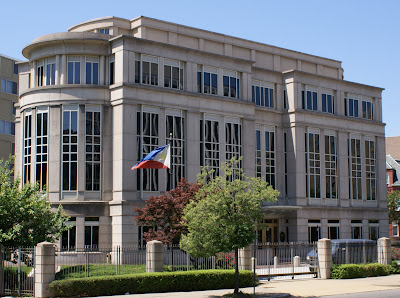With shooting in the streets of Bangkok, grenades exploding and the stock exchange on fire, Thailand might seem to be the last place for investors for Starting Up A Business.
But the turmoil, which has seen more than 50 people killed and about 1,600 injured, has had a remarkably limited impact on financial markets. Investors have judged that the disturbances - largely restricted to a high-profile but compact district of central Bangkok - represent only a modest threat to Thailand's economic stability.
Investors do not wish to pull out of one of the most open and investor-friendly of east Asia's fast-growing economies, where the government has, within the past month, raised its 2010 GDP increase forecast from a range of 3.3-5.3 per cent to 4.3-5.8 per cent.
The Financial Times's emerging markets hub, Standard Chartered Bank said the baht had been "remarkably stable during the political turmoil", because the market had largely factored in the unrest, and economic fundamentals were "relatively solid" in view of Thailand's big foreign exchange reserves, substantial current account surplus and economic growth.
Korn Chatikavanij, the finance minister, said this month that the official forecast of 4.5 per cent growth in 2010 would be achieved in spite of the turmoil. That may prove optimistic, with top officials saying this week the crisis might cost the country 0.5 of percentage point in GDP growth.
The disruption has hit tourism but, at about 5 per cent of GDP, its role is not as large as it might appear from the pages of glossy magazines. Other sectors outside central Bangkok, such as electronics, are largely unaffected.
Foreign investors have been taking money out of Thai equities. But the total net withdrawal of about $1bn is still short of the $1.2bn that came into Thailand in the first four months. By comparison, nearly $5bn net was taken out during 2008 as the global financial crisis struck.
Kevin Grice, of Capital Economics, a UK research group, says: "A complex political situation is taken as a given in Thailand; the economy has been able to go its own way. While there have been increased capital outflows, we haven't seen a massive wholesale capital flight. Foreign investors have taken a calibrated approach to the situation."
The currency has appreciated since the beginning of the year to around 32.5 baht to the US dollar, and the stock market is still up, in spite of the recent sell-off in emerging markets.
What could upset the foreign investors' views?
First, any spread of the turmoil from Bangkok to other regions could change perceptions. There has been sporadic violence in the north-east, where the anti-government protesters have strong support. But, so far, there has been little else. Signs of splits in either the government or the military could drastically alter the outlook. The Thai army has a long history of political intervention.
Finally, the long illness of 82-year-old King Bhumibol, who has been in hospital since last September, raises questions of the monarchy's future role. While Crown Prince Maha Vajiralongkorn's succession seems assured, he does not command the same reverence as his father. A powerful unifying force in Thai life could be lost.
If the transition comes before the political crisis is settled, that could trigger disturbances a long way from central Bangkok.







 2:28 PM
2:28 PM
 Travel and Immigration
Travel and Immigration



 Posted in:
Posted in:













